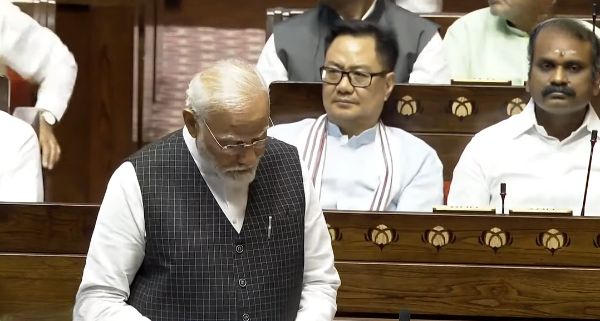Prime Minister Narendra Modi delivered a scathing critique of the Congress party during his address in the Rajya Sabha, accusing them of championing a cause he termed as ‘Save the Corrupt Andolan’ at the expense of India’s development. Modi’s remarks underscored a contentious theme in Indian politics as the nation prepares for upcoming elections.
In his speech, Modi asserted, “Congress is solely focused on ‘Save the Corrupt Andolan’. They have no interest in India’s progress and lack any vision for the same.” He called on Congress leaders to reflect on their own actions before casting aspersions on others, particularly condemning their alleged misuse of government agencies for political purposes.
The Prime Minister’s statements resonate within the context of a broader political narrative where the BJP positions itself as a champion of clean governance and accountability. Modi defended his government’s initiatives aimed at economic growth, infrastructure development, and social welfare, framing them as integral to India’s advancement.
The Rajya Sabha session, typically a forum for robust debate and legislative scrutiny, reflected heightened tensions and ideological clashes between the ruling party and the opposition. Modi’s address set the stage for a charged political discourse as parties vie for public support ahead of crucial electoral battles.
As India’s political landscape evolves, Modi’s accusations against Congress are expected to reverberate across public forums and shape electoral strategies. The upcoming sessions in Parliament will likely witness intensified exchanges as parties seek to sway public opinion and consolidate their positions in the run-up to elections.
The Prime Minister’s critique of Congress’s alleged prioritization of corruption over national interest underscores ongoing political dynamics and underscores the stakes for parties in shaping India’s future trajectory. The ensuing debates are poised to be pivotal in shaping public discourse and influencing voter perceptions as the nation navigates through a critical electoral cycle.



